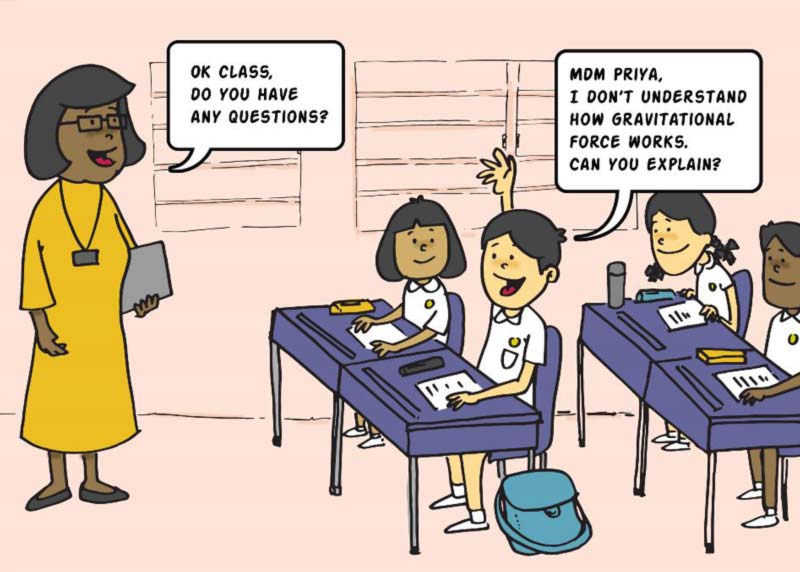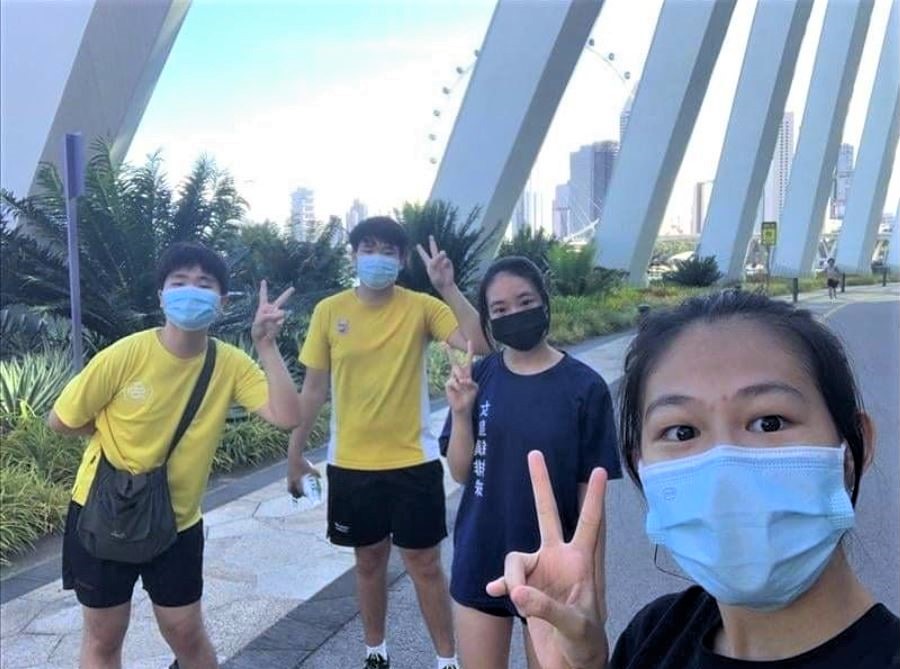A school’s annual sports meet is always a noisy, chaotic affair. But among all the cheering spectators and crowds milling around the stands, the sight of a girl staring intently at the race stood out for Mrs Christine Ho. The Allied Educator (AED) was struck by the look of interest on the student – because she knew the girl never had the chance to run in a sports meet before.
Tan Leyin, then a Secondary 2 student in St Margaret’s Secondary, had been diagnosed with cerebral palsy as a toddler. Cerebral palsy is a neurological disorder that affects the muscles, making movement and physical coordination difficult.
Nevertheless, as Mrs Ho guessed, Leyin harboured an interest in sports. More importantly, she was unafraid to test her limits.
Not about winning or losing, but doing better
“When Mrs Ho first spoke to me about taking part in a running competition, I was a bit uncertain,” Leyin shared. “I’ve never done something like that before! But I also wanted to challenge myself and take the chance to represent my school.”
She was also encouraged by Mrs Ho’s stories of past students who had done well at para-athletic events.
With Leyin and her parents’ consent, Mrs Ho sought feedback from Leyin’s PE teachers and therapists on her physical condition and stamina, and contacted the Singapore Disability Sports Council (SDSC) to register her for an upcoming inclusive sports competition.
While Mrs Ho provided the opportunity, Leyin took charge of her own training for the event. Since young, she has had the habit of brisk walking around her neighbourhood park to build up her strength. Before the competition, she switched up her routine by running at the stadium. Her father helped too, by timing her and teaching her static exercises to help her improve her balance.
“That was the main challenge for me, because I sometimes lose balance and fall,” Leyin explained with a smile.
She remembered feeling nervous on the day of her first competition – the 2019 Singapore Sports School Para Games.
“Once the race started, I just concentrated on the goal. I wasn’t thinking about whether I’d win or lose at all. I just want to do better than I did during training.”
Leyin achieved a gold medal for completing the 100m race in 30.75 seconds.

Leyin with her family and supporters at the Singapore Sports School Para Games 2019. In her hands, a board full of well-wishes from her classmates. Mdm Lee Lin Yee, immediate past Principal of St Margaret’s Secondary School (rightmost), along with Mrs Christine Ho (second from right), were also there to cheer for Leyin.
This same battery pack of determination powered Leyin to clinch a second gold medal, this time at the 100m event at the Haw Par Junior Youth Athletics Meet in March this year, with an improved timing of 26.34 seconds.
On both occasions, her teachers and friends could not be more proud of what she achieved, and Leyin was invited to share about her experience with everyone in school.
“My hands were shaking the whole time,” Leyin recalled of her time on stage. “But it was a good experience!”
Inclusive school practices can come in small ways
Besides her sporting achievements, Leyin feels that her classmates and teachers treat her largely as they do any other student in school – for which she is grateful.
“My friends don’t really talk about my condition, but they understand what I am going through and cares for me through their actions,” she said.
For instance, movements that require fine motor skills can still present an obstacle, such as hooking the tiny clip on her skirt after PE lessons.
“My friend will come up and offer to help, so I won’t be late returning back to class,” she shared. “They will also slow down so we can walk back together and not leave me behind.”
Otherwise, Leyin is independent and able to hold her own during lessons and classroom activities. She even gets to enjoy PE lessons as the teachers modify some of the requirements so that they will be manageable yet suitably challenging for her. Her favourite games? Floorball and basketball.
When it comes to her academics, her teachers hold Leyin to the same expectations they have for other students , but ensure that her condition does not interfere with her learning. For example, because Leyin needs more time to write, she would be given printed notes or slightly more time for her assignments. Mrs Ho also supports Leyin with the access arrangements for her examinations, such as practising typing with her for certain subjects.
Leyin is touched by how her teachers look out for her.
“Mrs Ho also goes the extra mile to make sure all the invigilators know what I need. My teachers allow me to be independent while being patient. That’s important to me.”
What we can’t do today doesn’t mean we can’t do it tomorrow
Leyin is still keen to take part in more para-athletic events in the future. But she is now busy preparing for her N-Level examinations in the next couple of months. She is also pursuing her other hobbies, such as music.

Growing up, Leyin was encouraged to try a variety of activities, such as tennis, ballet and playing the piano. Besides improving her motor skills, the process of learning taught her important lessons in resilience.
Leyin already has plans for what she wants to pursue after her secondary school.
“I am interested to do a diploma in social work, and maybe work as a therapist, counsellor or even a teacher in the future,” she shared. “My teachers have given me so much, and opened up many opportunities for me. I want to pass on the same care and kindness to others.”
She acknowledges that it will not be easy, but she is not one to give up in the face of challenges. Her experiences have shown her that most hurdles in life can be overcome with the right attitude.
To explain, she shares an accomplishment that she was particularly proud of this year:
“I tried skipping in primary school, but couldn’t manage it. This year I did it! It really taught me that what we can’t do today doesn’t mean we can’t do it in the future. We just need to keep building up our strength, and try again.”



.jpg)


